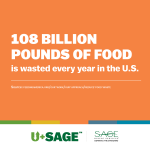 A June article in the Nutrition Journal suggests that the diets of many American youth aged 8-18 fall well short of the recommended daily allowance of fruits, vegetables and whole grains -- foods known to be useful in cancer prevention. In addition, the article states, pre-adolescents and adolescents consume higher than recommended amounts of foods that have been found to increase cancer risk: red and processed meats, refined sugars, salt and alcohol.
A recent study found that 6.2 percent of adolescents aged 12-18 ate the recommended amounts of fruit, and 2.2 percent of the same age group met vegetable consumption recommendations. In 2009, fewer than one-quarter of U.S. high school students nationwide had eaten five or more daily servings of fruits and vegetables during the seven-day period prior to the survey.
The picture is even sadder for whole grains consumption. Data from 1999 to 2002 indicated that only 3.4 percent of adolescents 12-18 ate the recommended amount of whole grains.
Desserts, dairy desserts and candy are significant sources of refined sugar in the American diet. Among teens, consumption of sugar-sweetened beverages -- soda, sports and energy drinks, fruit drinks and sweetened tea -- is an almost daily occurrence, with average consumption approaching 33 ounces per day. And while health experts continue to lower the recommended maximum daily allowance for sodium -- currently 2,300 mg -- teenagers consume much more than that: an average of 4,266 mg per day for males and 2,950 for females.
The paper's authors concluded that while adolescents have some freedom to choose what to eat, parents should continue to support healthy eating habits in the home. "Epidemiological studies suggest that unhealthy dietary habits that develop early in life and persist into adulthood may increase the risk of some cancer types," the authors wrote.
Read the entire article here.
A June article in the Nutrition Journal suggests that the diets of many American youth aged 8-18 fall well short of the recommended daily allowance of fruits, vegetables and whole grains -- foods known to be useful in cancer prevention. In addition, the article states, pre-adolescents and adolescents consume higher than recommended amounts of foods that have been found to increase cancer risk: red and processed meats, refined sugars, salt and alcohol.
A recent study found that 6.2 percent of adolescents aged 12-18 ate the recommended amounts of fruit, and 2.2 percent of the same age group met vegetable consumption recommendations. In 2009, fewer than one-quarter of U.S. high school students nationwide had eaten five or more daily servings of fruits and vegetables during the seven-day period prior to the survey.
The picture is even sadder for whole grains consumption. Data from 1999 to 2002 indicated that only 3.4 percent of adolescents 12-18 ate the recommended amount of whole grains.
Desserts, dairy desserts and candy are significant sources of refined sugar in the American diet. Among teens, consumption of sugar-sweetened beverages -- soda, sports and energy drinks, fruit drinks and sweetened tea -- is an almost daily occurrence, with average consumption approaching 33 ounces per day. And while health experts continue to lower the recommended maximum daily allowance for sodium -- currently 2,300 mg -- teenagers consume much more than that: an average of 4,266 mg per day for males and 2,950 for females.
The paper's authors concluded that while adolescents have some freedom to choose what to eat, parents should continue to support healthy eating habits in the home. "Epidemiological studies suggest that unhealthy dietary habits that develop early in life and persist into adulthood may increase the risk of some cancer types," the authors wrote.
Read the entire article here.







